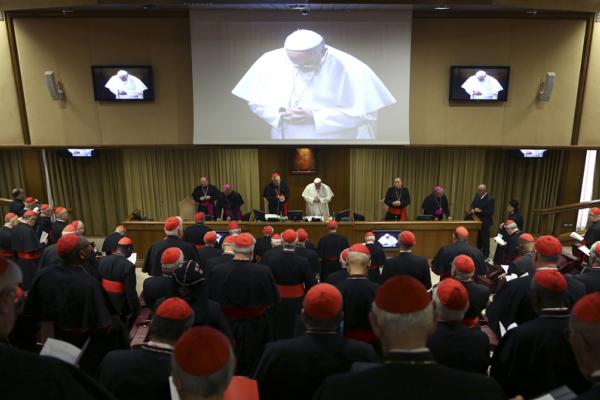Pope Francis called for a Vatican that operates with “absolute transparency” as he gathered more than 165 cardinals in Rome for high-level meetings aimed at tackling one of the toughest challenges of his reformist papacy: overhauling the dysfunctional bureaucracy of the Roman Curia.
The goal, Francis told a lecture hall filled with the scarlet-clad “princes of the church, is to foster “greater harmony” among the different church offices in a bid to foster “absolute transparency that builds authentic … collegiality.”
“Reform is not an end in itself, but a means of bearing a powerful Christian witness,” Francis said.
That was a nod to the scandals that overshadowed the waning years of Benedict XVI’s papacy and undermined the Vatican’s credibility with the public and the dismayed churchmen who had to deal with the fallout.
The two-day gathering with the cardinals – including the 20 new appointees who the pope will officially elevate on Feb. 14– comes almost two years to the day after Benedict stunned the world by announcing that he would become the first pope in nearly 600 years to resign from office.
Read the Full Article

